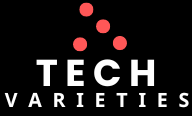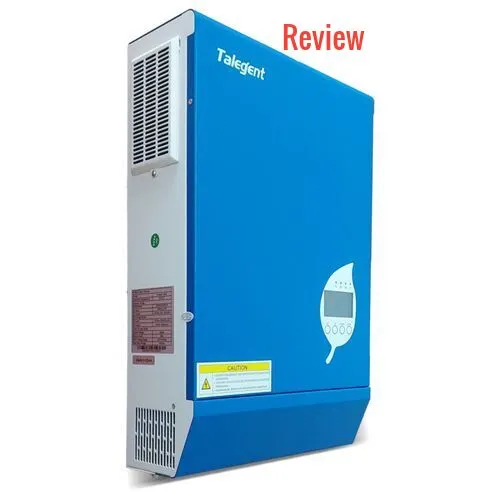In today’s world, power reliability is essential, especially in regions like Nigeria, where power outages are common. For many households and businesses, solar energy systems have become a dependable solution to power challenges. At the heart of these systems lies the inverter, which converts direct current (DC) from solar panels into alternating current (AC) used by most household appliances. But when choosing an inverter, should you go for a hybrid or pure sine wave inverter? This blog post explores the key differences between these two types of inverters and helps you decide which is preferable.
What is a Pure Sine Wave Inverter?
A pure sine wave inverter produces an output that closely mimics the smooth, consistent waveform of utility-supplied electricity. This type of inverter generates clean and stable power, ideal for all types of electrical devices, including sensitive electronics.
Advantages of Pure Sine Wave Inverters
- Universal Compatibility: Pure sine wave inverters work seamlessly with all appliances, from simple lighting systems to advanced medical equipment. They ensure that sensitive electronics like laptops and TVs function without interference.
- Reduced Noise: These inverters operate quietly, as the clean power they produce doesn’t create the electrical noise that can cause humming or buzzing in some devices.
- Extended Appliance Lifespan: The stable power from a pure sine wave inverter reduces the risk of overheating and malfunction in your appliances, prolonging their life.
Disadvantages of Pure Sine Wave Inverters
- Higher Cost: The technology behind pure sine wave inverters is more complex, making them more expensive than their hybrid counterparts.
- Complexity: With higher efficiency and quality, these inverters can be more complex to maintain and repair if issues arise.
What is a Hybrid Sine Wave Inverter?
A hybrid sine wave inverter, also known as a quasi-sine wave inverter, is a middle ground between pure sine wave and modified sine wave inverters. It produces a waveform that approximates a sine wave but isn’t as smooth as that of a pure sine wave inverter. While not as perfect as pure sine wave, it offers better performance than modified sine wave inverters at a more affordable price.
Advantages of Hybrid Sine Wave Inverters
- Cost-Effective: Hybrid sine wave inverters are generally more affordable than pure sine wave inverters. This makes them an attractive option for those on a budget.
- Adequate Performance: While they don’t match the power quality of pure sine wave inverters, hybrid sine wave inverters perform adequately for most household appliances and basic electronic devices.
- Versatility: Hybrid sine wave inverters can handle a variety of household appliances, making them suitable for general use.
Disadvantages of Hybrid Sine Wave Inverters
- Limited Compatibility: These inverters may not work well with highly sensitive electronics or devices with precision motors. You might notice noise or reduced performance.
- Higher Risk of Interference: The quasi-sine waveform can cause interference, leading to the buzzing or humming of appliances, and might reduce the efficiency of certain devices.
- Potential Shortened Appliance Lifespan: Using a hybrid sine wave inverter could potentially shorten the lifespan of sensitive electronics due to the less stable power output.
Which Inverter is Preferable?
Choosing between a pure sine wave and a hybrid sine wave inverter depends on your specific needs and budget. If you need to power sensitive electronics and appliances, the pure sine wave inverter is the best choice. Its clean and stable output ensures that all your devices run smoothly and last longer, justifying the higher initial investment. On the other hand, if your budget is limited and you primarily need to power basic household appliances, a hybrid sine wave inverter could be a more cost-effective solution.
Transitioning to Solar Energy in Nigeria
Solar energy adoption is on the rise in Nigeria, driven by the need for reliable power solutions. The Nigerian market offers a variety of solar energy products, including inverters, from several reputable vendors. Below are some well-known solar energy vendors in Nigeria:
- Luminous Solar: A trusted brand offering both pure sine wave and hybrid inverters. They have a wide range of solar products suitable for residential and commercial use.
- Blue Camel Energy: Specializes in high-quality solar energy systems, including pure sine wave inverters, known for their reliability and efficiency.
- Rubitec Solar: Offers solar solutions tailored to the Nigerian environment, with a focus on durability and performance. Their inverters are widely used across the country.
- Gennex Technologies: Provides cutting-edge solar energy solutions, including hybrid and pure sine wave inverters. They are known for their innovative approach to solar technology.
- GreenPower Overseas Limited: A key player in Nigeria’s solar market, offering a range of inverters and other solar energy products designed to meet local power needs.
Conclusion
Understanding the differences between hybrid and pure sine wave inverters is crucial in making an informed decision for your solar energy system. While pure sine wave inverters offer superior power quality, hybrid sine wave inverters provide a cost-effective alternative for less demanding applications. By considering your specific power needs and budget, you can select the inverter that best meets your requirements, ensuring reliable power for your home or business. As solar energy continues to grow in popularity in Nigeria, choosing the right inverter will be key to maximizing the benefits of your investment.

